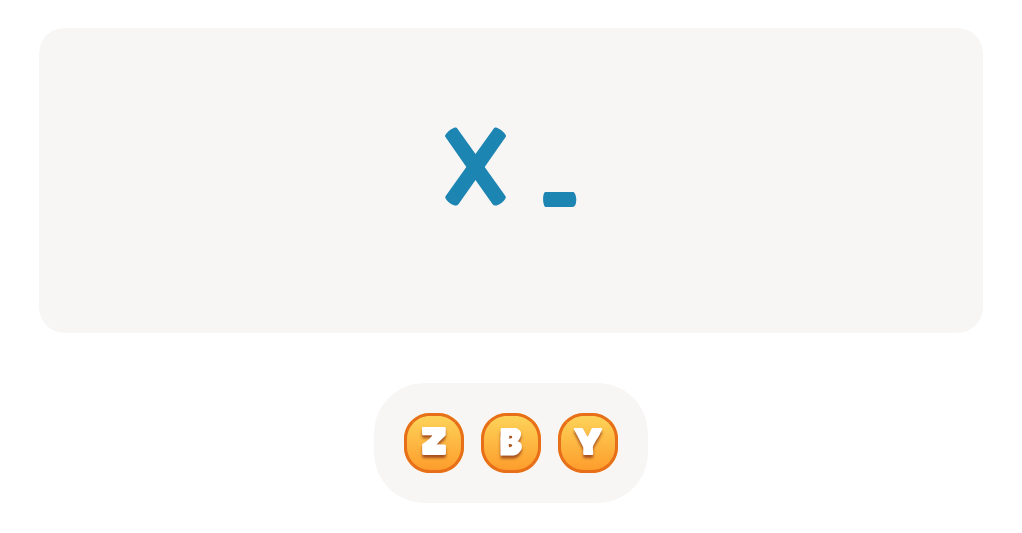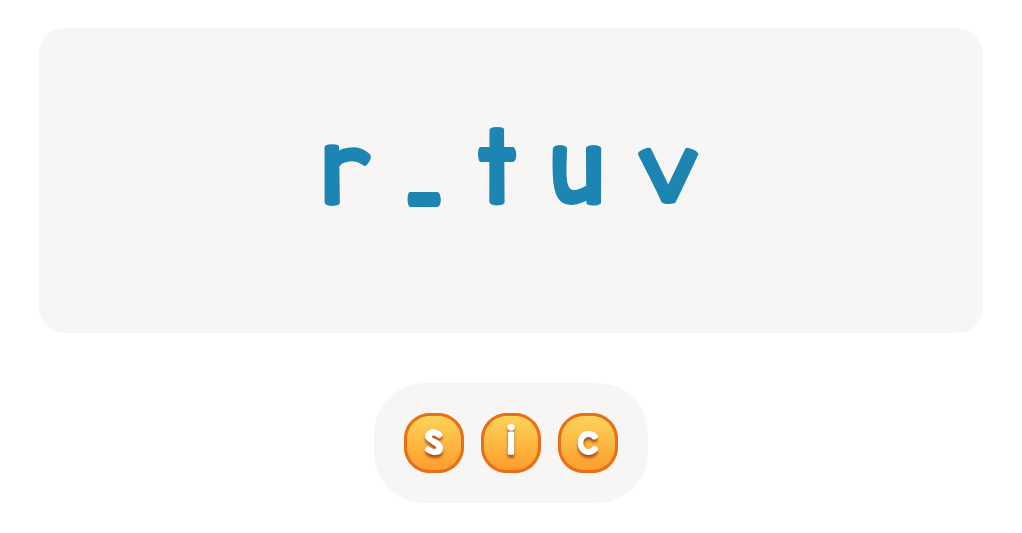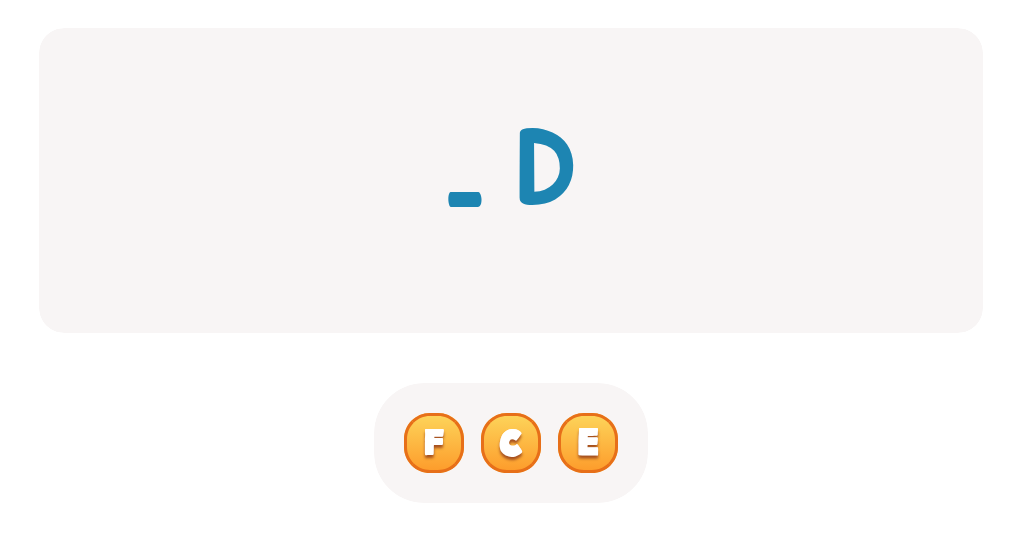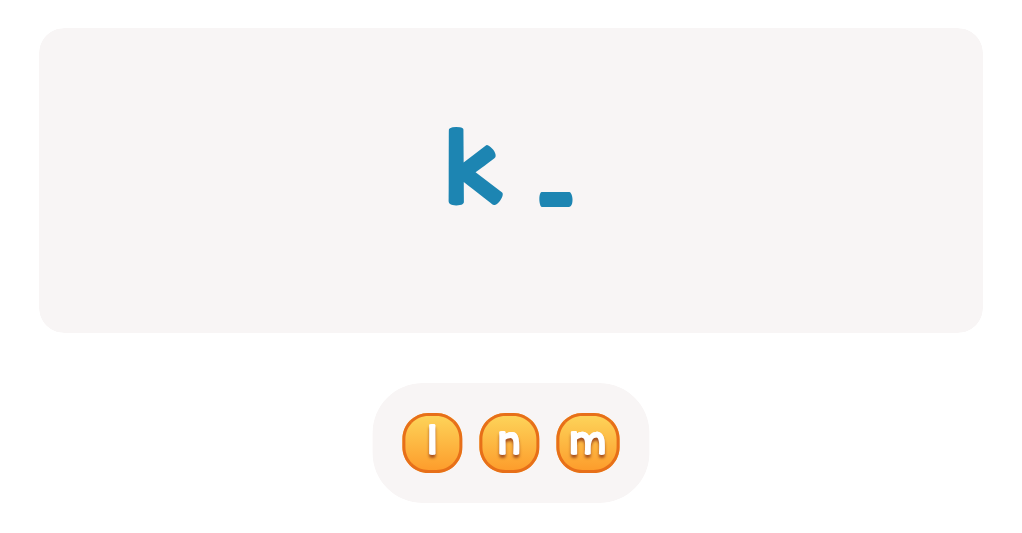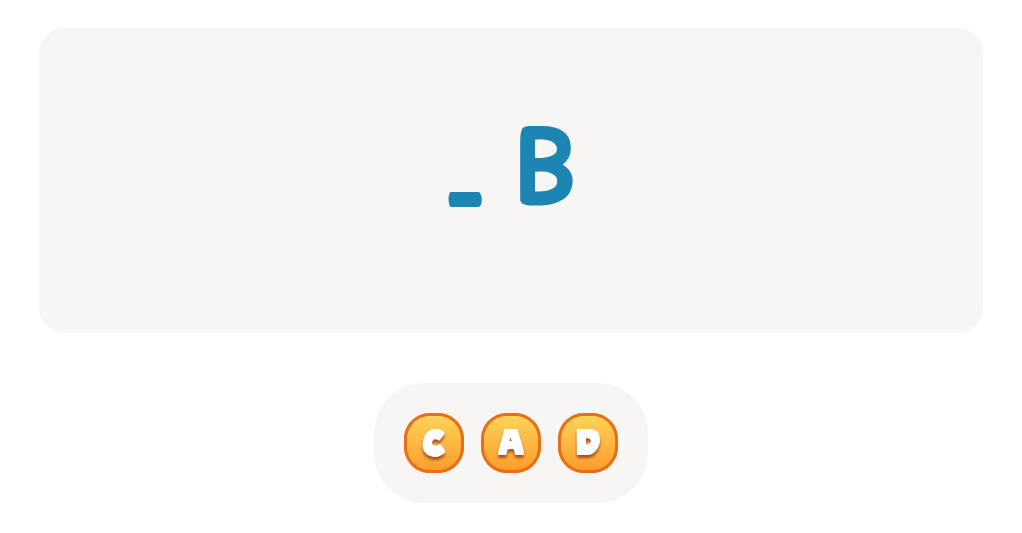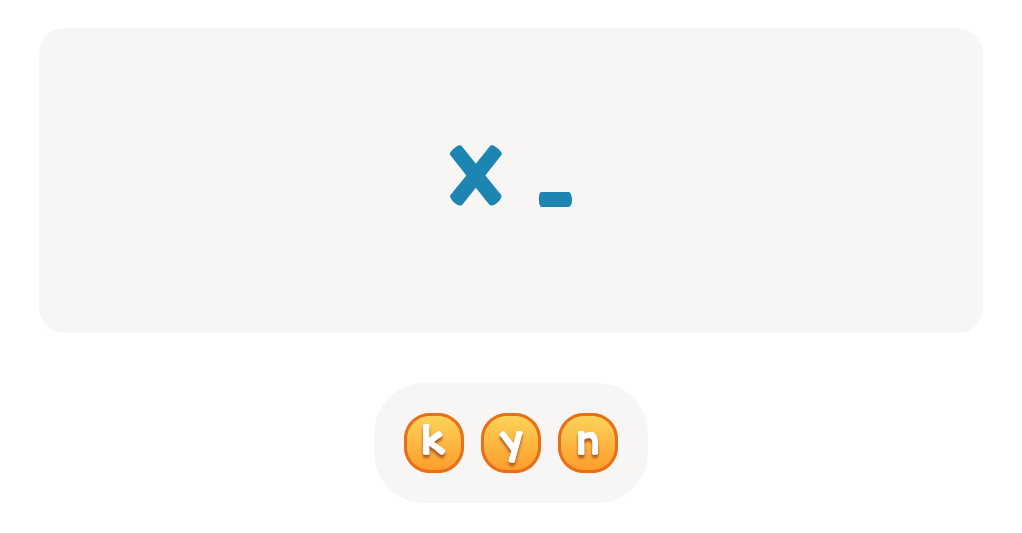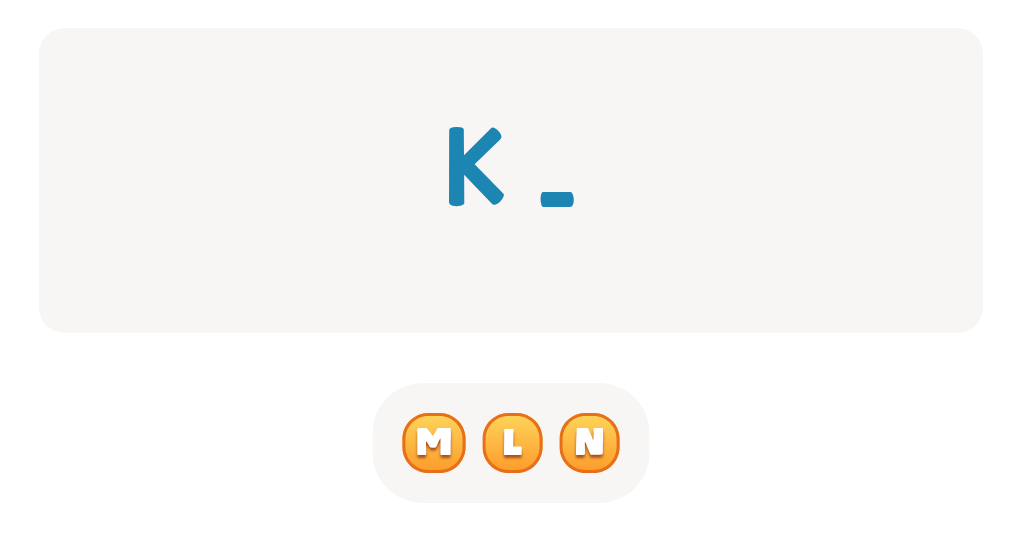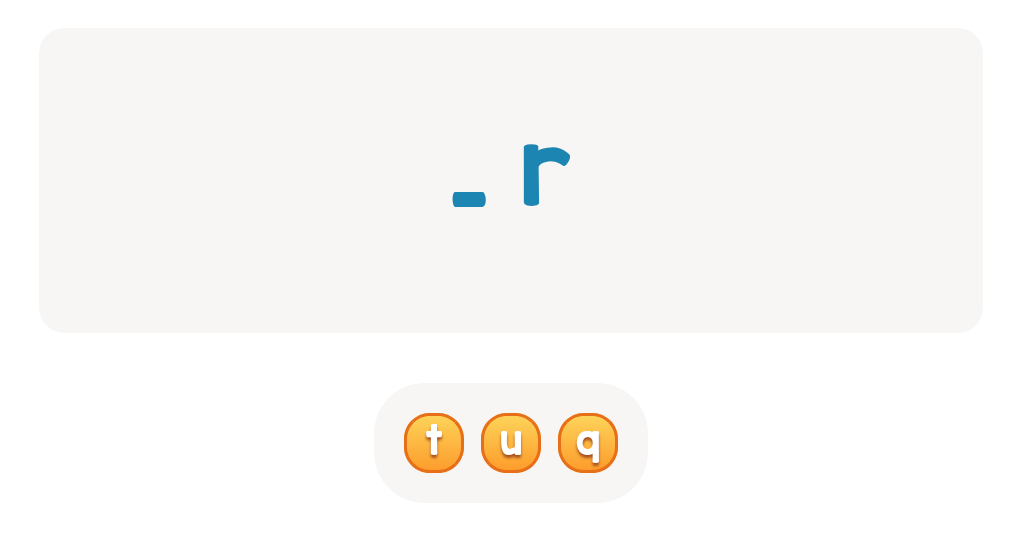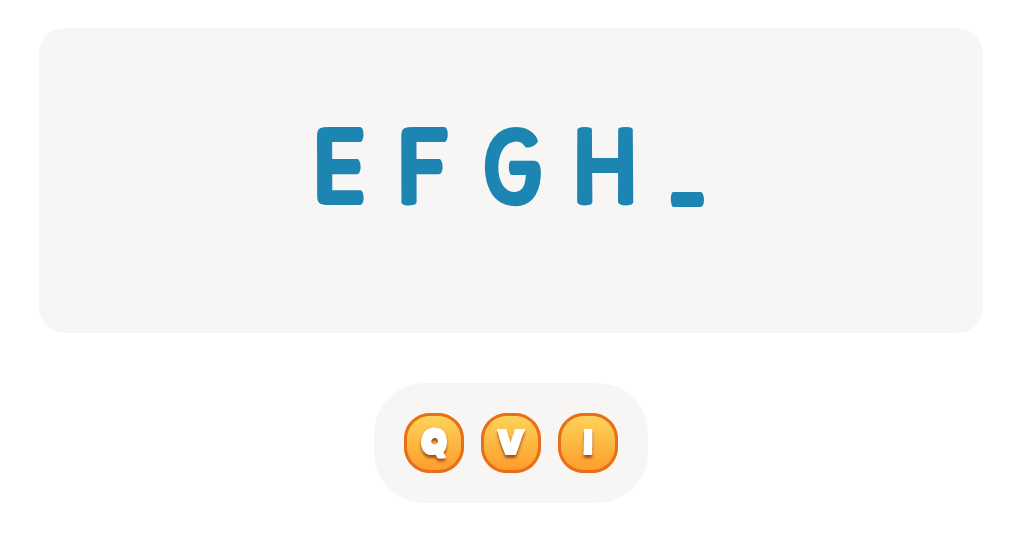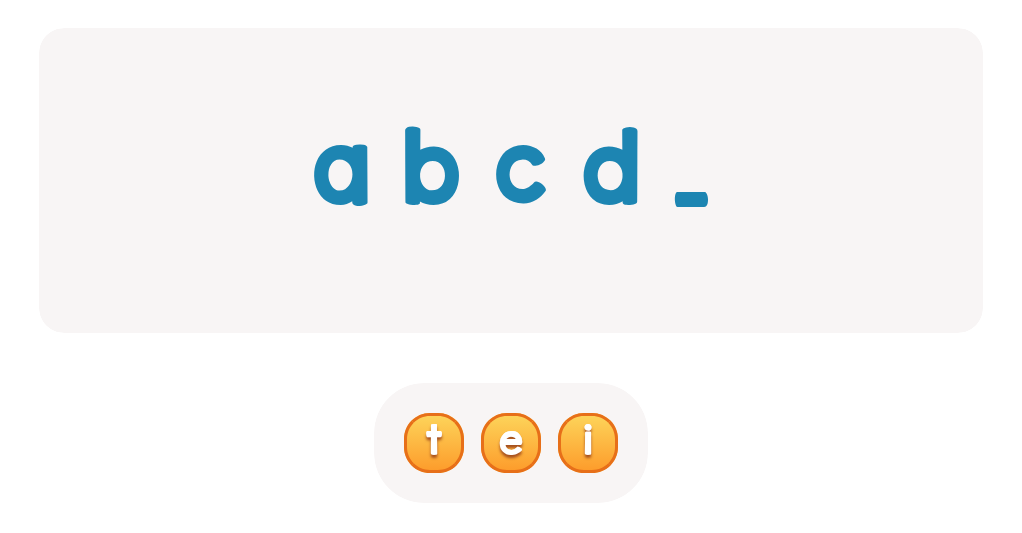Alphabet understanding Upper & Lowercase Letters Worksheets for Ages 5-9
3 filtered results
-
From - To
Enhance your child's literacy skills with our engaging "Alphabet Understanding Upper & Lowercase Letters Worksheets," designed specifically for ages 5-9. These printable resources offer a fun and interactive way for young learners to identify and differentiate between uppercase and lowercase letters. With various activities, including letter matching, tracing, and visualization exercises, kids will gain confidence in recognizing and using the alphabet in everyday language. Each worksheet is thoughtfully crafted to cater to different learning styles, fostering a love for reading and writing. Start your alphabetical journey today and help your child develop essential foundational skills for future success!
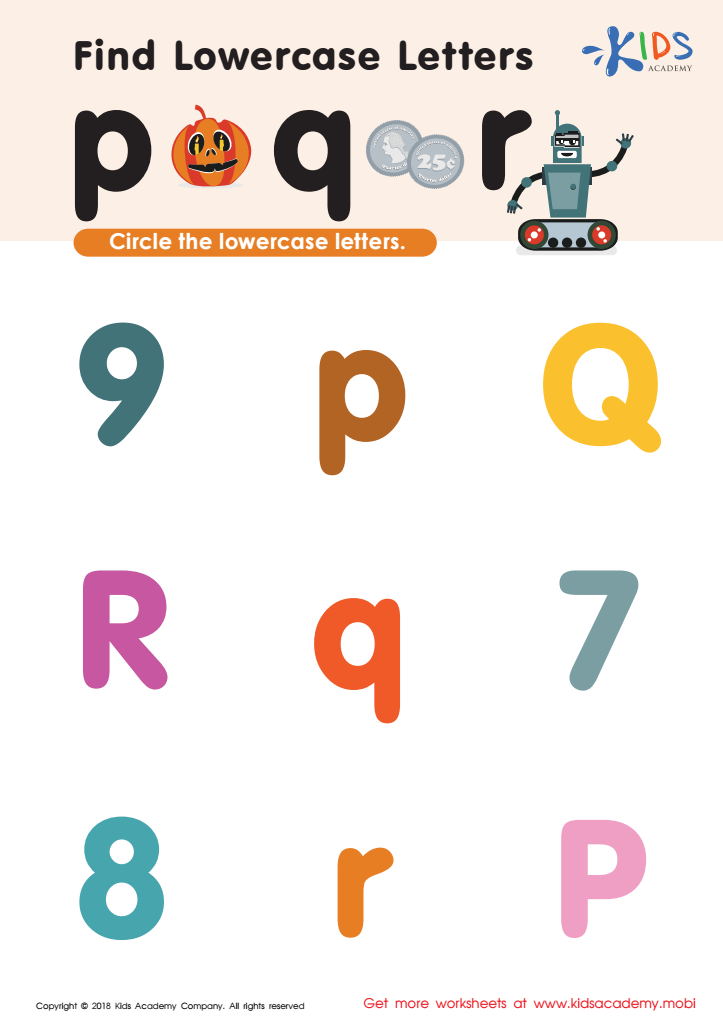

Find lowercase Letters p q r Worksheet
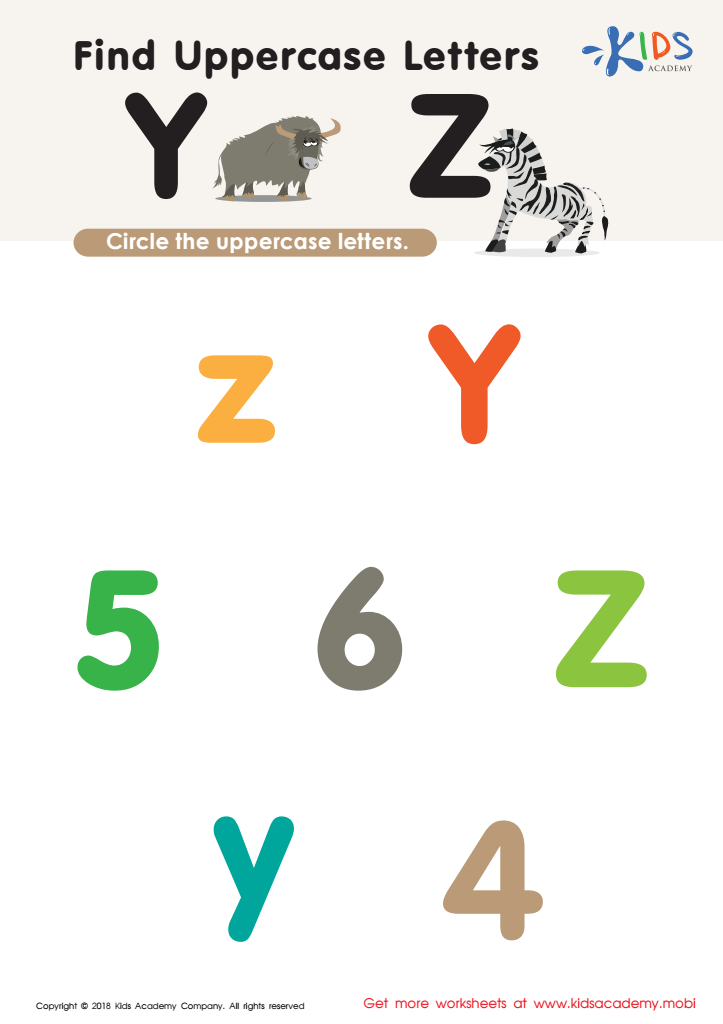

Find Uppercase Letters Y Z Worksheet
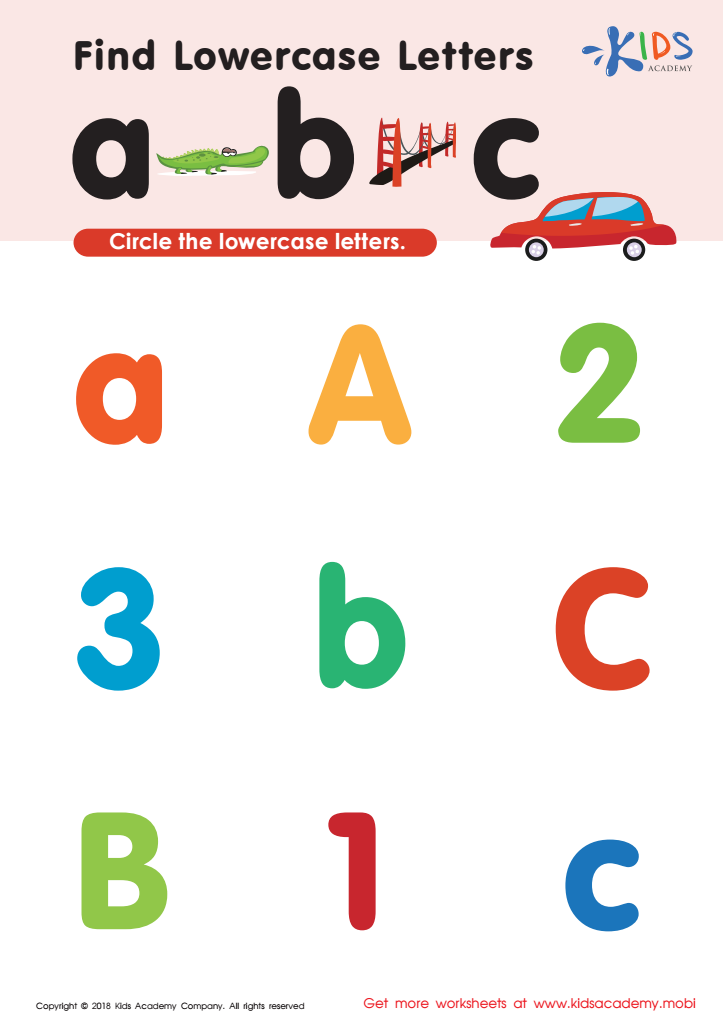

Find lowercase letters a b c Worksheet
Understanding uppercase and lowercase letters is crucial for children aged 5-9 as it lays the foundation for literacy development. Mastery of the alphabet directly influences a child's reading and writing skills, which are essential for academic success. Recognizing the distinction between uppercase and lowercase letters helps children identify words better, enabling them to read fluently and comprehend texts.
Parents and teachers should prioritize alphabet understanding because it nurtures confidence in a child's abilities. When children can easily differentiate between letter cases, they are more likely to engage with written materials, fostering a love for reading. Moreover, this knowledge supports spelling, as many early spelling rules depend on recognizing which letters are capitalized—like the beginning of sentences or proper nouns.
Additionally, engaging with uppercase and lowercase letters can enhance fine motor skills. Activities like writing letters help children develop coordination necessary for future tasks. Children who grasp these concepts early often show greater enthusiasm for learning, paving the way for more complex language skills down the line.
Ultimately, understanding the alphabet is not just about letters; it's a pathway to communication, self-expression, and academic achievement. Parents and teachers play a vital role in guiding this crucial developmental stage, significantly impacting a child's lifelong learning journey.
 Assign to My Students
Assign to My Students
